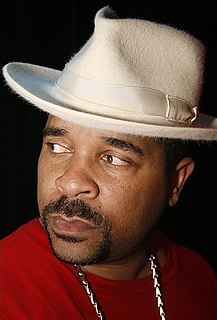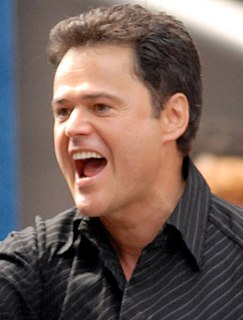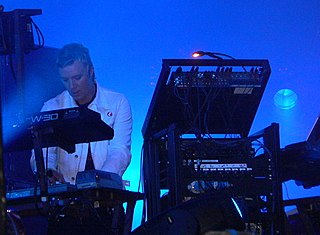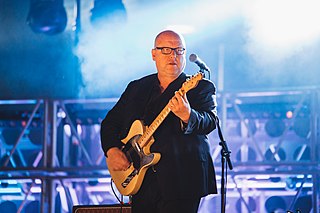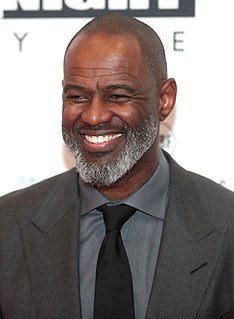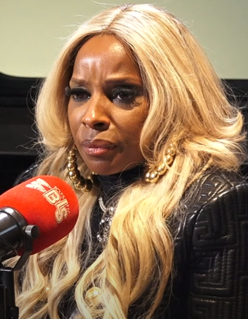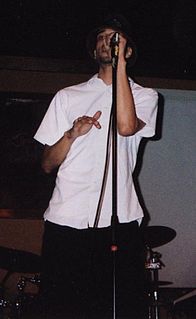A Quote by Sir Mix-a-Lot
That was the coolest thing about 'Baby Got Back.' The establishment didn't embrace the song, which is what kept me from being the next pop guy to fizzle out and get laughed at, get dissed on TV. That helped save me. The fact that MTV banned the record made the record, in a weird way.
Related Quotes
The mindset of chasing that next #1 record doesn't exist for me anymore. It's more about being a well-rounded entertainer than being a pop artist. Obviously, it would be wonderful to have a hit record but I don't base my happiness on that anymore. It's about the accomplishment of a project that satisfies me. I just want to enjoy the ride.
Right away, I knew I didn't want to have that look of other guys with long hair and bell-bottom pants, because everybody else had that look. I kind of adopted my boarding-school look, which made me stand out. Then the next thing you know, the first song on my first record is a song called "School Days." It's about going to the boarding school I went to. So then I just started to write about myself. The very first song I ever wrote was about a guy I met in a boatyard that we were working in. So I've always had this thing about sticking to more or less what I knew.
When we've got something to say to the world, we will. I'm really happy that people are interested. "So, what's up with the Pixies record? So, what's up with the Pixies record?" One guy just kept asking me and asking me in an interview, and I kept saying, "I just got done telling you no, there's nothing to report."
In fact, on a side note, after the success of the first record, I got asked to write for some pop artists, as everybody does, and I did a couple songs for some of these massive stars and the review that I got back was, "This artist likes the song but it's too POP-y for them." I was like, "What do you mean, I thought I was writing for a pop star."
The live thing is separate from the record for me. I have to figure out a way to make the songs work live. It's always going to be different than it is on a record, because every record I've made, there are people playing parts on there that are not going to be coming on tour with me. As much as still feeling connected to it, it's more like rediscovering.
What people generally tell you is, "We'll all agree," and then once you sign, they expect to get their own way. I think it was a bit of a surprise that I was still very headstrong even after signing. I wasn't so happy to get a deal that I would agree to anything. In fact, I disagreed on most things and got my way on most things, which I think was to all of our benefit. But they wanted the record to come out, and I wanted the record to come out, so we had to work together.
I feel less and less like that every year, and I guess maybe even more so with every new record that I put out. I just think, as the years go by, it's harder and harder to really find a reason to be annoyed that you made something that people want to continuously talk about. Certainly there are contexts in which the record can be discussed which will get me on the defensive and make me want to put some kind of calibration or some kind of context on what the record means in relation to my career as a whole.
Remember one thing about ESPN: People can be critical of them sometimes for being a large corporation but nine years ago I had a stroke and I couldn't talk. That's the way I made my living. ESPN could've dumped me very easy, but they didn't. They helped me and presented me an opportunity to get back on the air.
You sometimes get the feeling that people think getting back together after a hiatus to write and record a record is work, you know, arduous and unpleasant. Being able to write and record - that's a privilege. I don't forget the long days I spent working in a restaurant, when I wanted to be done so I could go home and work on a song.
I haven't been walking around for years with some burning desire to do a solo record. If I had, maybe I'd have made a record that was experimental. Usually, the idea of a solo record is to get some weird stuff out of your system, but I don't think like that. I wasn't interested in making something that was a hard listen - maybe I'll get around to that some other time. I wanted it to sound effortless, not like I was trying to reinvent the wheel.
This is basically the last resort. I've been painted into a corner, and now I've sort of got to lay it all out in order for things to be straightened up. I've tried to move on with my life and my career for the last two years and do my own thing, and 'American Idol' and FOX, they've just been making it really tough for me to do that. So in order for me to get through all the red tape and just allow people to just get at my talent, I've got to set the record straight. And you can't set half the record straight; when you tell it, you've got to tell it all.
